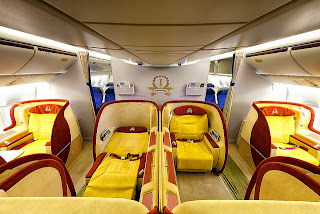Recent research has shown that smartphones really are a traveller’s best friend and, thanks to recent advancements in technology, organisations are also befriending them more than ever.
Last week, a survey from TripIt, the leading mobile travel organiser from Concur, has shown that travellers find it much easier, and are more comfortable, staying in touch with their partners back home thanks to the variety of technology that’s accessible through their smartphones.
Just 17% of TripIt respondents said they still found it difficult to stay in touch with home when travelling on business. And just 8% continue to find it stressful to say goodbye to their partners. Instead they are finding comfort in their smartphones, which allow them to stay in constant contact whether through regular phone calls, video calls, email, text messages and social networking.
88% of travellers make phone calls to stay in touch with back home, 47% use video calls, 85% texts and 72% email. Despite having the same access to technology, those staying put don’t seem to have embraced technology in quite the same way with 95% sticking to phone calls and just 37% using video calls, 78% texts and 45% email.
I think what’s important about these figures, which, to some degree, seem to state the obvious, is that connected travellers are no doubt happier, less-stressed travellers, which means their productivity and wellbeing will be leaps and bounds ahead of those travellers who are home sick and suffering because of it and companies will save money as a result.
Mobile technology is not only proving its worth for staying in touch at home, but also when travellers are away. Social media tools, in particular, enable travellers to stay in touch with their community of trusted contacts and also enable them to hook up with fellow travellers. These can be wide or niche communities, for example, MaidenVoyage.com for women travelling alone.
The next smartphone technology to make a huge impact on travellers’ lives is undoubtedly NFC (near field communication): contactless payments. This is increasingly available and soon it won’t feel strange to make payments through a mobile phone with a chip in it instead of using a credit card. It will, for example, automatically do travel expenses, open hotel room doors and start cars.
And for organisations, smartphone technology is also proving to be worth its weight in gold. NFC, for example, has the potential to save money – lots of money – by encouraging traveller compliance. For example, suggesting you take the underground from the hotel instead of a cab (together with the route), or instead of taking a taxi to a favourite bistro, travellers will be directed towards restaurants in the hotel’s vicinity that are within budget.
The smartphone is already a must-have travelling gadget, over the next 12 months it will become the traveller’s companion. The technology to make that happen already exists – it is just a matter of time before it becomes standard.
David Chapple is event director of the Business Travel Show and is already planning his trip to the GBTA Conference in the UK this August using TripIt and will be glued to his smartphone before, during and after his travels.











